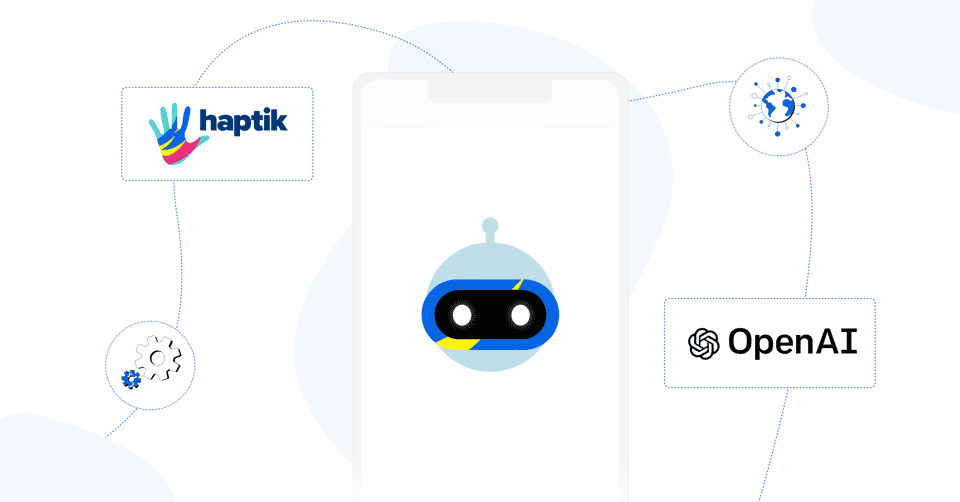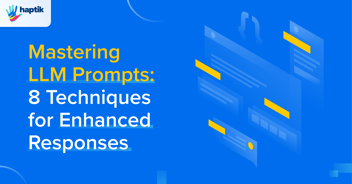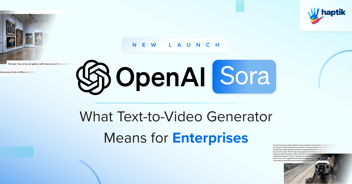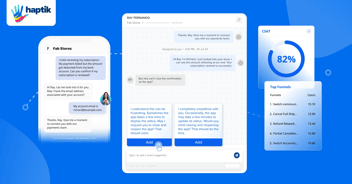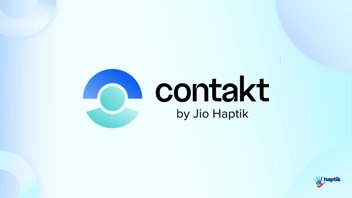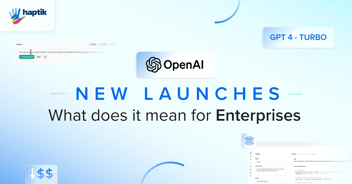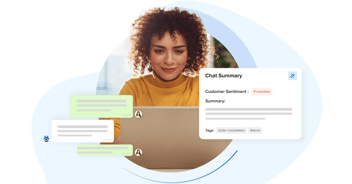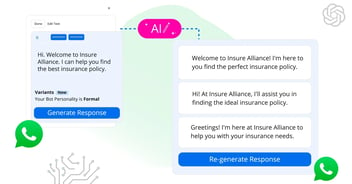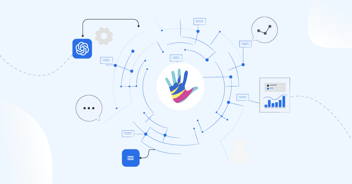Jio Haptik, a leading Conversational Commerce platform that helps enterprises like Whirlpool, JioMart, and The Container Store, amongst many others, to conduct their end-to-end business with Conversational AI and generate revenue, announced plans to partner with other technology providers to train ChatGPT so that it can be used in real-world business use-cases.
The release of ChatGPT by OpenAI has taken the internet by storm, and rightly so. ChatGPT is an extensive language model that has been trained to generate text responses in a conversational style. It is based on the GPT-3.5 (Generative Pretrained Transformer version 3.5) model developed by OpenAI. ChatGPT is designed to generate human-like responses to a wide range of topics, making it useful for applications such as chatbots and virtual assistants.
Upon the announcement of the plans to work with ChatGPT, Swapan Rajdev, Co-founder and CTO of Jio Haptik, said: “With more than a decade of Haptik’s industry and domain-specific expertise, combined with Chat GPT’s language model, it will be a winning combination to drive success for brands and customers. We are also excited to join hands with other technology partners looking to leverage ChatGPT and take Conversational AI & Commerce to a new level of precision and possibilities. However, it is equally important to understand that ChatGPT comes with its own limitations.”
With the announcement, Haptik also released the following guidelines about the impact of ChatGPT on conversational commerce and businesses interested in it.
ChatGPT is excellent at answering general-purpose and industry-specific questions.
Using ChatGPT, brands can save time and energy that would otherwise be spent training their chatbot on industry-related questions. Since ChatGPT already has this expertise, it can immediately provide customers with detailed responses about a particular industry or domain. Haptik's domain-specific NLU models can then be used to improve these responses even further and encourage users to progress further along their customer journey. This way, ChatGPT can provide significant input to existing conversational AI platforms.
ChatGPT cannot solve business-specific use cases without heavy training
ChatGPT has been trained with billions of data points for a generic application. It’s possible to use it for something as specific as conversational commerce, but very few players have the muscle to train it.
Haptik’s Intelligent Virtual Assistants (IVA), for instance, have completed six billion conversations with more than half a billion customers, driven more than a million conversational commerce transactions, and generated far more leads and satisfied customers. These conversations come with a right or wrong label, a customer satisfaction score, a notation on whether human assistance was requested, and how the human handled the situation. In short, Haptik has an unparalleled volume of annotated business-specific data that could be used to train ChatGPT or similar algorithms. Still, it will take considerable investments in data science and computational power to make the training work.
ChatGPT can be effective as a tool only if it can connect with external APIs, something that is not available as of now.
While ChatGPT is a great tool to process unparalleled knowledge and tap it with human-like conversations, taking action on these conversations requires APIs that connect with other relevant systems. Payment Systems, Marketing Platforms, and Commerce Platforms are critical for conversational commerce integrations with CRM systems. Haptik has succeeded in conversational commerce by implementing an out-of-the-box integration ecosystem with leading platforms like Shopify, Salesforce, Zendesk, Razorpay, PayU, and others to support end-to-end customer journeys. Without such integrations, the ROI of a tool like ChatGPT is tough to justify.
ChatGPT can predict questions.
In conversational AI, knowing the right question is as important as knowing the correct answer. Customer queries can seem unending and difficult to prioritize when a brand builds its first chatbot. However, ChatGPT, combined with Haptik's "smart skills," identifies and builds ready-to-use conversation flows for the top use cases customers need to get in touch with the brand, making this process much simpler.
ChatGPT can reduce the training time of Conversational AI models.
ChatGPT offers a few practical benefits to businesses, but one of the best is that it has the existing seed data to construct a bot. Using deep learning, ChatGPT grasps different ways customers might phrase queries, so brands don't need to add a bunch of query variations to their bots. With Haptik's AI recommendations and feedback loops, chatbots can keep augmenting data until they become self-learning.
In conclusion, even though ChatGPT is not yet commercially available, it is clear that conversational commerce platforms like Haptik, along with state-of-the-art models like chatGPT, can together help brands enhance their experiences. While everyone is eagerly waiting for chatGPT to come out of research mode, it is clear that the ecosystem of conversational commerce is undergoing significant innovation and advancement.
For more information, or to consult with us on these guidelines, reach out to enterprise@haptik.ai.

